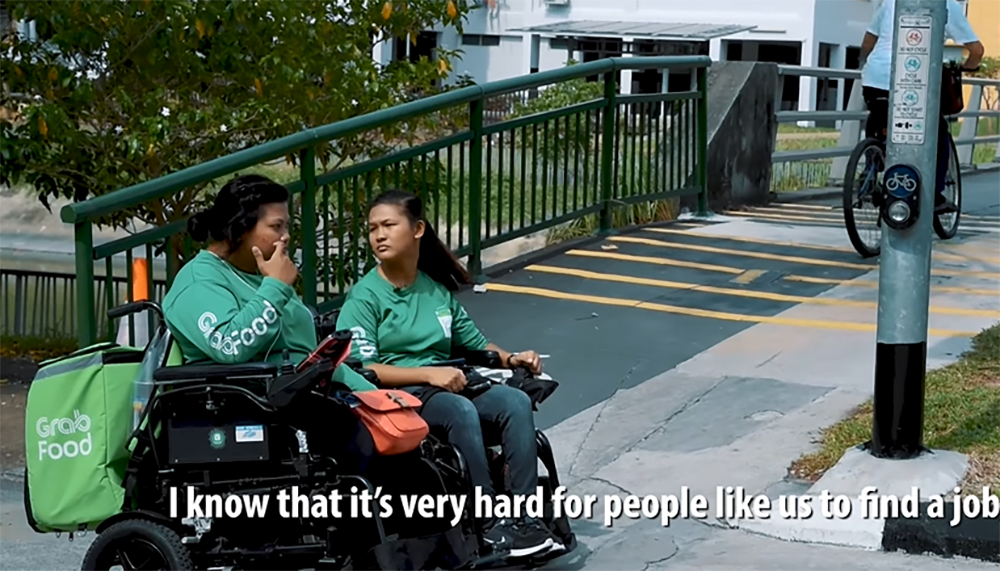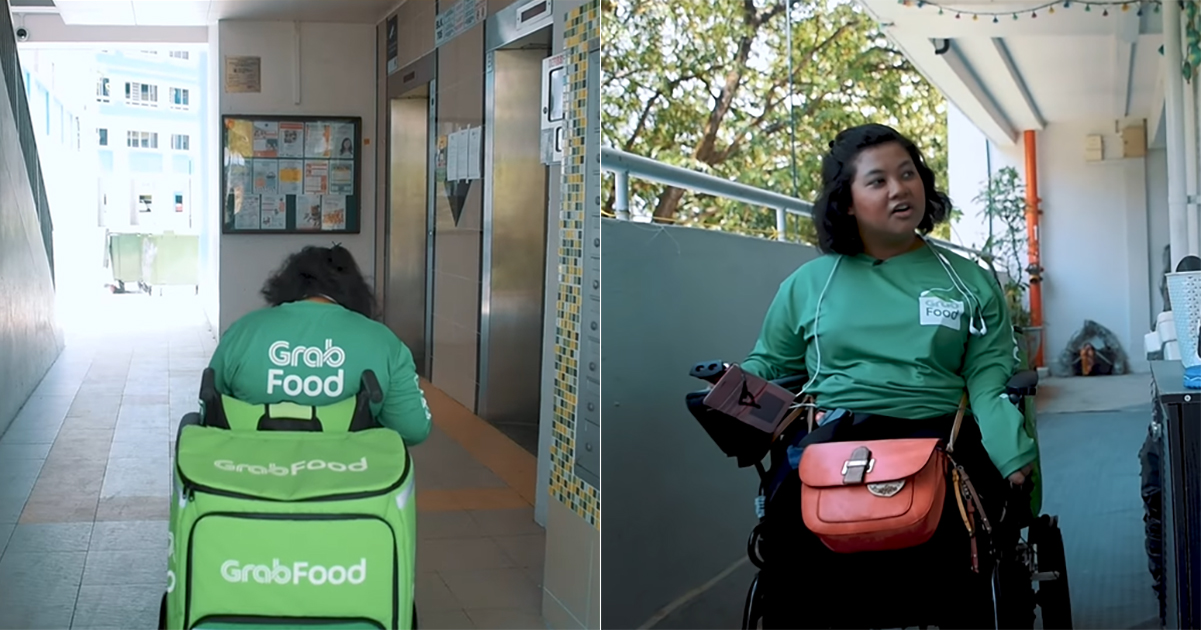In the spotlight recently was a GrabFood delivery personnel in Singapore who goes around Tampines estate, and as far as Bedok, fulfilling orders in a wheelchair.
Her indefatigable spirit and revelation by Malay media Berita Harian that she has cerebral palsy touched many Singaporeans.
GrabFood delivery a means of employment for those with disabilities
Following up on this account, CNA Insider featured another GrabFood delivery personnel, Roszana Ali, 26, who also has cerebral palsy.
The video took a close look at her struggles with doing this gig -- as well as the pride and independence it brings to her as it is her first paying job.
GrabFood a viable employment option
Roszana finished school seven years earlier, but had been unable to land a job despite going for six job interviews.
The major plus point with her current GrabFood job was that she did not even have to declare that she was in a wheelchair, or that she had cerebral palsy, a condition that affects muscle control and co-ordination.
Eight months into the job, Roszana has made more than 600 deliveries.
Challenges in life
Roszana is still facing challenges on the job these days, despite having had a vital door open for her to participate in Singapore's burgeoning gig economy.
Urban Singapore poses many physical obstacles, such as lifts that don't work, as well as lifts that stop in between floors with units accessible only by the stairs.
But she has met with understanding customers who do not mind walking to her location to pick up the food.
She recounted: “I said alamak... Luckily, I had a good customer (who came upstairs) to take the food.”
She has been treated with kindness too.
An elderly woman who was cooking bubur cha cha gave her some and another passer-by handed her S$60.
Shy initially at work
Roszana revealed that she was initially shy on the job as she felt she did not know the roads in Singapore well, as she did not go out often, and had trouble facing customers.
She was introduced to GrabFood by her best friend and school mate who also has cerebral palsy.

And there has been a few milestones.
The first time Roszana delivered food, she was egged on by her best friend who waited for her downstairs.
Subsequently, having broken the ice, Roszana was excited to get her GrabFood uniform -- an achievement unlocked after making 100 deliveries.
She now works Tuesdays to Sundays, five hours a day, delivering food mostly from Jurong Point shopping centre.
She typically makes between S$5 and S$7 per order, and is able to make five to seven deliveries a day before her electric wheelchair runs out of power.
A distance of 3km to 4km is considered far and she has to reject nine out of 10 orders because of accessibility issues.
A regular GrabFood rider can earn three times more in the same amount of time Roszana works.
Grab has since said it will make wheelchairs a legitimate choice to be selected in the app for riders who use one.
Grab also plans to not give deliveries beyond 3km to 4 km to wheelchair personnel, and exclude areas that are not wheelchair-friendly, so that this group will not have to waste time rejecting orders.
Better life in the future?
Roszana's father still feels worried about his daughter doing the GrabFood job despite her having the experience, and gaining self-confidence and contentment.
He wants her to have the kinds of benefits and stability that usually come with full-time employment
“If we have money from (withdrawing our) CPF savings, I’d like to open an eatery for her. Let her manage it,” he said.
But Roszana is in a better place than she previously was.
She has acquired many functional skills, despite only attending school when she was 15.
Mainstream schools she applied to back then did not accept her because of he condition.
She was diagnosed with cerebral palsy at age two and had seizures.
But her seizures stopped when she was aged 12, and three years later, her father found a place for her in the Cerebral Palsy Alliance Singapore School in Pasir Ris.
They took care of her transportation too.
Before this, she picked up English by listening to her brothers speak and watching Channel 5 -- with Malay subtitles for assistance.
People with disabilities in Singapore
There are 176,000 people with disabilities aged 20 to 64, as of 2017, as reported by The Straits Times based on the authorities’ estimates of the prevalence of disability here.
An estimated 5 percent of people here with disabilities have jobs, which is one of the lowest rates among developed nations, ST also reported.
Top photos via CNA Insider
If you like what you read, follow us on Facebook, Instagram, Twitter and Telegram to get the latest updates.
